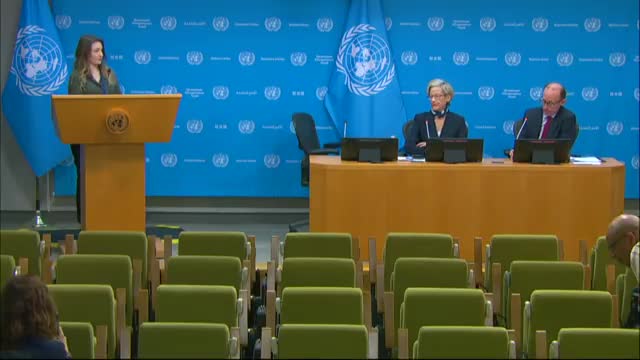UN experts warn sanctions, legislation are eroding International Criminal Court independence

Summary
Two UN special rapporteurs told reporters at a New York briefing that recent criminal cases, proposed national laws and punitive measures targeting International Criminal Court judges, prosecutors and civil-society partners threaten judicial independence and victims' access to justice.
Professor Ben Saul, the UN special rapporteur on counterterrorism and human rights, and Margaret Satterthwaite, the UN special rapporteur on the independence of judges and lawyers, told reporters in New York that a series of state measures is putting the International Criminal Court and its personnel at risk.
"The independence of judges and lawyers is not optional," Satterthwaite said, calling on states to "protect the independence and impartiality of all those who work there." She described sanctions, criminal investigations and legislative proposals that target ICC personnel as "a direct attack on international law" and warned of a chilling effect that reaches victims, human rights organizations and academics.
The two experts listed several recent measures they said are affecting the court: Russia has opened criminal cases against the ICC prosecutor and five judges in response to warrants; the Israeli Knesset has considered legislation intended to shield Israeli officials from ICC scrutiny; and the United States has imposed sanctions on six judges and three prosecutors, measures the rapporteurs said are intended to impede ICC investigations. Satterthwaite said secondary effects of U.S. sanctions include legal exposure for those who provide services to named individuals, which has reduced cooperation from civil-society groups and legal professionals.
Saul and Satterthwaite also pointed to sanctions on several Palestinian human-rights organizations, naming Al Haq, Al-Mizan and the Palestinian Centre for Human Rights (and noting an earlier sanction on Adameer), as examples of actions that can undermine investigations and victim assistance. "These measures raise serious questions under international law," Satterthwaite said, adding that they risk "setting a dangerous precedent" for targeting courts and those who work with them.
Both rapporteurs urged states parties to the Rome Statute and UN member states to speak out, to continue financial support for the ICC and to enforce arrest warrants when appropriate. Saul said that the ICC exists to address situations where national justice systems fail and cautioned against withdrawals from the court.
The experts said they have sent formal communications to governments and that responses are uneven; in some cases, no reply was received within the 60-day window those communications allow. Satterthwaite said she had observed a clear chilling effect on cooperation with the court and called for states to rescind punitive measures targeting judges and prosecutors.
The briefing closed with an appeal to bar associations, civil-society groups and states to publicly defend judicial independence and to ensure victims retain access to international justice.
Less critical details: the experts framed their remarks as the product of mandate reporting and communications to states and noted related developments in Brazil and Costa Rica involving alleged punitive measures against judicial personnel.

